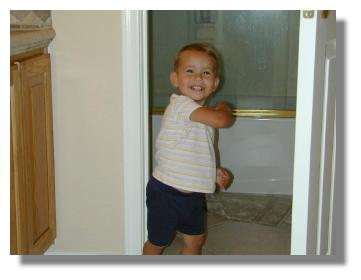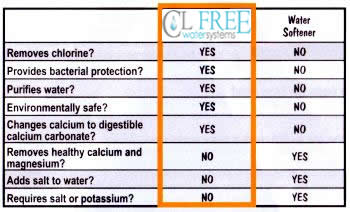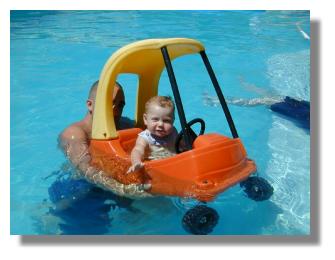|

"All
right !!! I get to take a bath in Chlorine Free Water."
Why
should I use your system instead of a water softener?
A water
softener might be right for your needs. But before buying
either device, ask yourself, "What are my requirements?" Then
review the following list of pros and cons.

Are
carbon filters a source of Legionnaires Disease?
AC (Activated
Carbon) Filters have been found to be a source of Legionnaires
Disease when they are not maintained, as have standing pools
of water such as are found in air conditioners. The problem
with standing water is the chlorine evaporates or dissipates,
and there is no long lasting (latent) bacterial protection.
The CL Free Water System puts copper ions into the water to
provide the latency that chlorine does not. The copper ions
don't evaporate or dissipate, so your protection remains.
The CL Free Water System's AC Filter backwashes itself completely,
automatically.
What
type of Activated Carbon do you use, and why?
We use
only the finest grade of highly activated, specially treated,
coconut shell activated carbon (AC). Our AC has 25% more surface
area then non treated and other types of AC (coal based).
It does not affect the water's pH. It is significantly better
at absorbing MTBEs then non treated and other types of AC.
It is the highest quality activated carbon available for drinking
water treatment.

"I
always wash my car in Chlorine Free Water"
What
about these salt water pool systems? They claim to add no
Chlorine...
These
systems use salt or potassium. Salt is sodium chloride. Potassium
is potassium chloride. These systems simply break the chlorine
(chloride) out of the salt. So while you may not have to add
chlorine as such, you did add chlorine by putting salt in.
You also end up with salty pool water and potential corrosion
problems.
What
else do I need to know?
The sensor
probe used for the Fully Automated, Sensor Driven, pH Pool/Spa
System should be kept wet at all times. If left to dry out,
the useful life and accuracy of the sensor is decreased. This
is a consideration during installation. The sensor needs a
“wet” location on your pool/spa plumbing.
|
